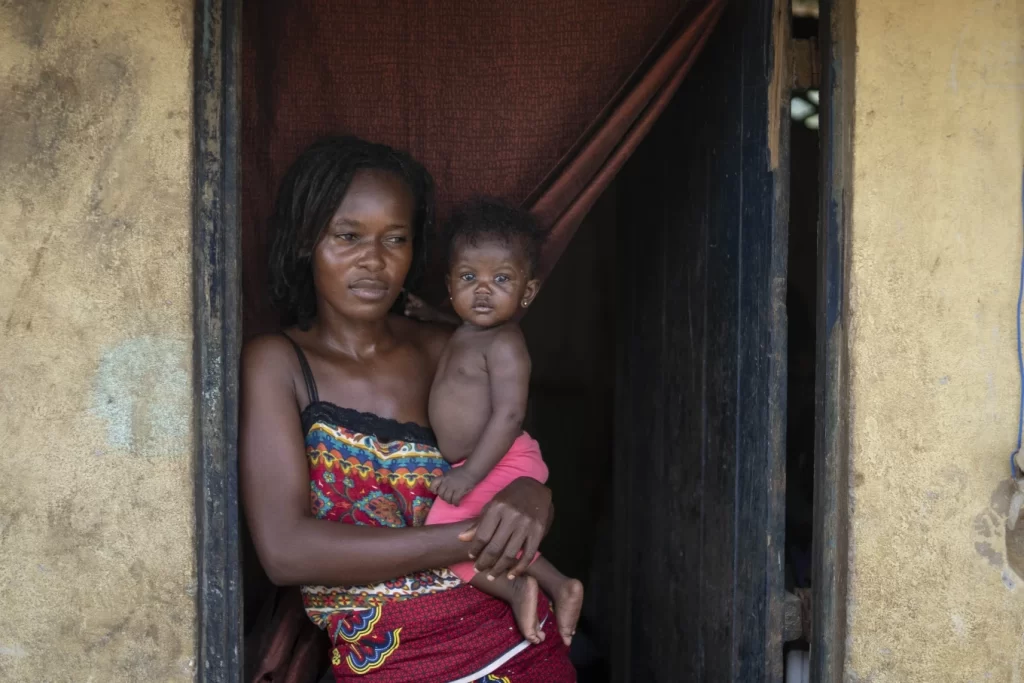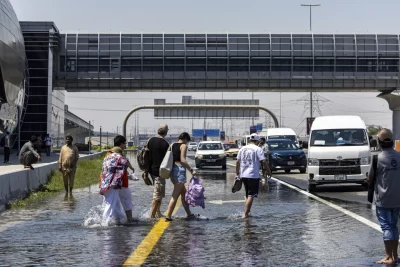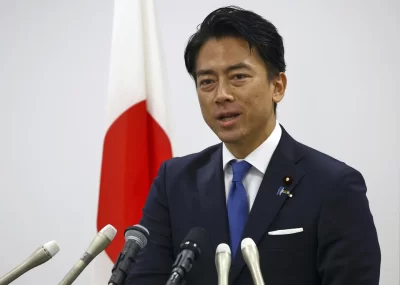
MOANDA, Congo — The oil drills that loom down the road from Adore Ngaka’s home remind him daily of everything he’s lost. The extraction in his village in western Congo has polluted the soil, withered his crops and forced the family to burn through savings to survive, he said.
Pointing to a stunted ear of corn in his garden, the 27-year-old farmer says it’s about half the size he got before oil operations expanded nearly a decade ago in his village of Tshiende.
“It’s bringing us to poverty,” he said.
Congo, a mineral-rich nation in central Africa, is thought to have significant oil reserves, too. Drilling has so far been confined to a small territory on the Atlantic Ocean and offshore, but that’s expected to change if the government successfully auctions 30 oil and gas blocks spread around the country. Leaders say economic growth is essential for their impoverished people, but some communities, rights groups and environmental watchdogs warn that expanded drilling will harm the landscape and human health. Since the French-British hydrocarbon company, Perenco, began drilling in Moanda territory in 2000, residents say pollution has worsened, with spills and leaks degrading the soil and flaring — the intentional burning of natural gas near drilling sites — fouling the air they breathe. And the Congolese government exerts little oversight, they say.
Perenco said it abides by international standards in its extraction methods, that they don’t pose any health risks and that any pollution has been minor. The company also said it offered to support a power plant that would make use of the natural gas and thus reduce flaring. The government did not respond to questions about the proposed plant.
Congo’s minister overseeing oil and gas, Didier Budimbu, said the government is committed to protecting the environment.
Congo is home to most of the Congo Basin rainforest, the world’s second-biggest, and most of the world’s largest tropical peatland, made up of partially decomposed wetlands plant material. Together, both capture huge amounts of carbon dioxide — about 1.5 billion tons a year, or about 3% of global emissions. More than a dozen of the plots up for auction overlap with protected areas in peatlands and rainforests, including the Virunga National Park, which is home to some of the world’s rarest gorillas.
The government said the 27 oil blocks available have an estimated 22 billion barrels. Environmental groups say that auctioning more land to drill would have consequences both in Congo and abroad.
“Any new oil and gas project, anywhere in the world, is fueling the climate and nature crisis that we’re in,” said Mbong Akiy Fokwa Tsafak, program director for Greenpeace Africa. She said Perenco’s operations have done nothing to mitigate poverty and instead degraded the ecosystem and burdened the lives of communities.
The central African nation of Congo is known for its mineral riches. Now the country is looking to expand the oil drilling that so far has taken place only in its far west and off its Atlantic coastline. (AP video: Nqobile Ntshangase/Sebabatso Mosamo)
Environmental activists said Congo has strong potential to instead develop renewable energy, including solar, as well as small-scale hydropower. It’s the world’s largest producer of cobalt, a key component for batteries in electric vehicles and other products essential to the global energy transition, although cobalt mining comes with its own environmental and human risks.







